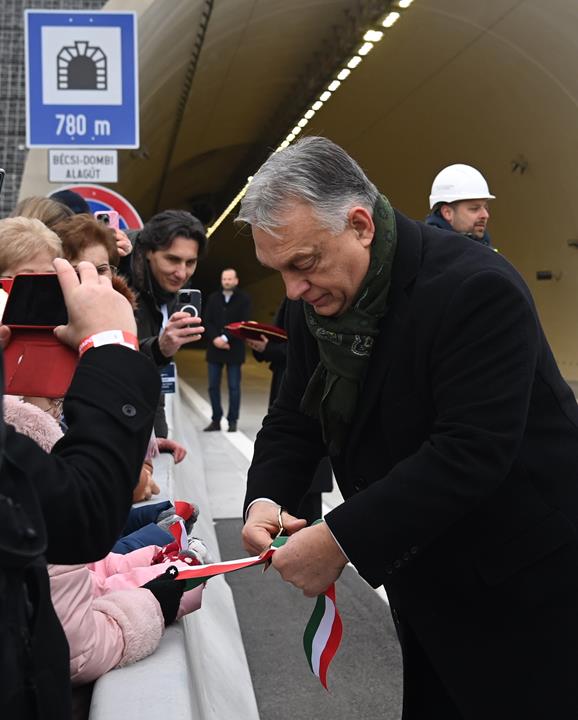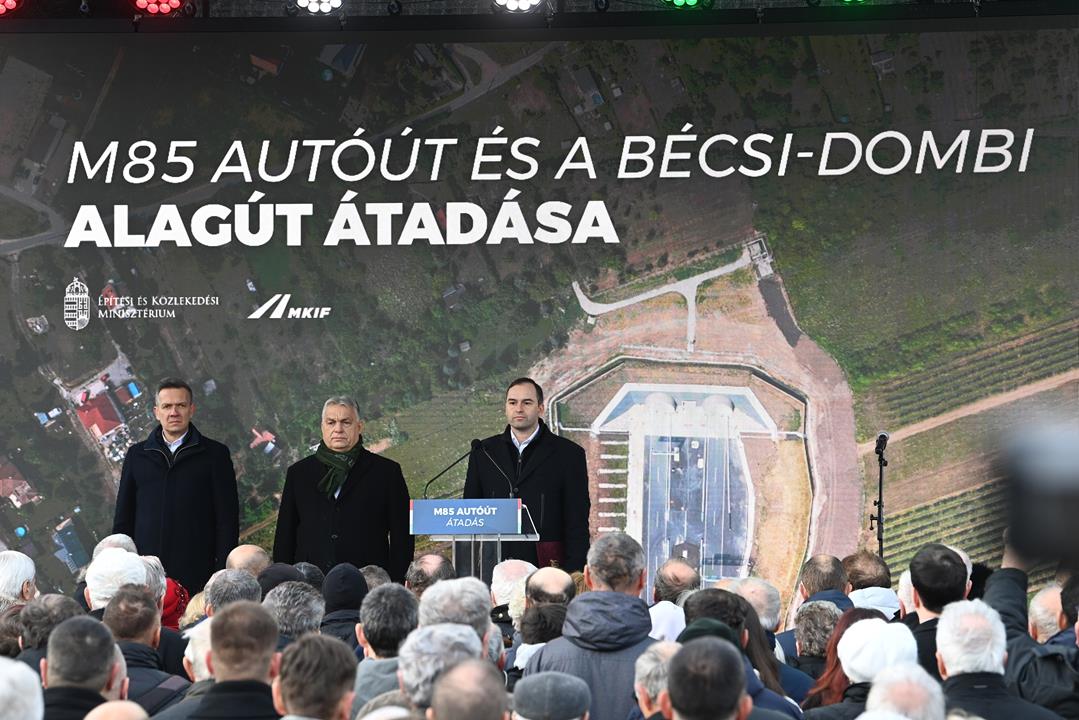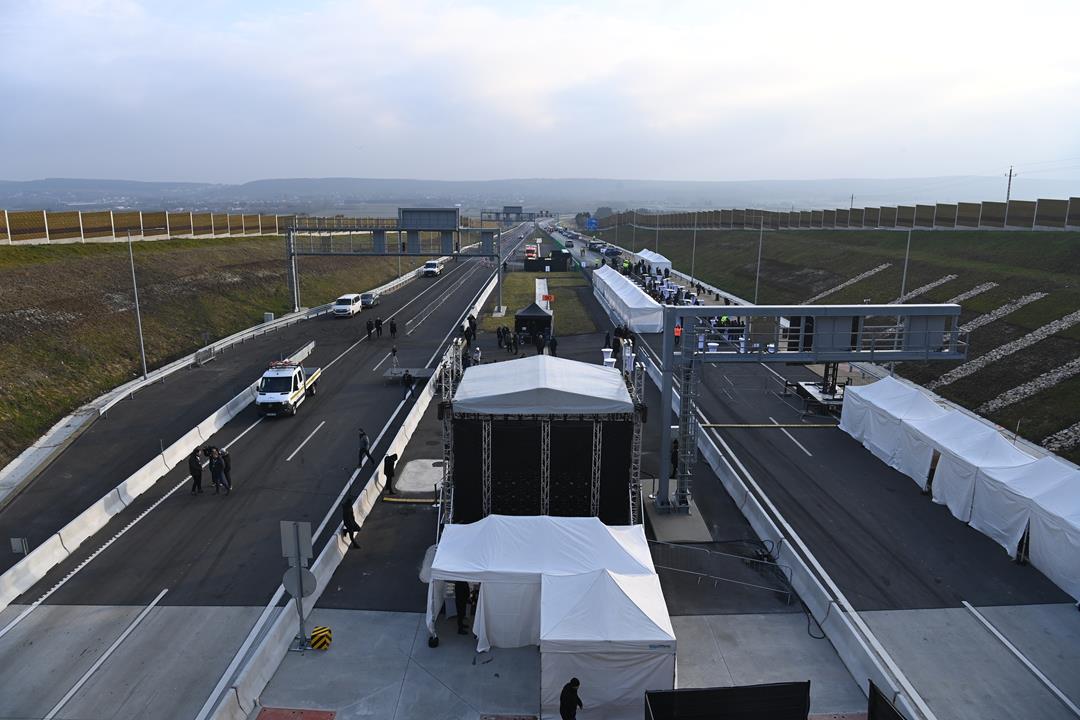Change language:
New motorway stretch, twin tube tunnel inaugurated in Hungary – PHOTOS
Local and central government officials inaugurated a 4-kilometre new motorway stretch of the M85 motorway, between the city of Sopron and the border with Austria, on Saturday.
In his speech, Orbán noted that in 1921 Sopron and its surrounding villages voted in a referendum to remain within Hungary’s borders, but the global powers had separated Hungarians with the new borders forced on them. But, he added, the fact that “we are here 103 years later” was a testament to the nation’s strength and its confidence in the future.
The prime minister said that after the first world war Hungary’s enemies had decided that Hungarians “should be small and poor”. But Hungarians never accepted this fate, and “we always wanted Hungary to be a big and rich country”. “If we lose the war, we’ll win peace,” Orbán said. He said Hungarians had always lost out when the nation had been “pushed to civilisational borders”. “We were on the losing end when the Christian-Islam civilisational border was located on the country’s territory, centuries of war cost Hungarian lives, and the country’s economic strength was also lost,” he said.

“We were also losers of the Cold War when we were ripped away from Europe,” the prime minister said. “Sopron was also a loser of this period, with the most difficult period in its history being the time when the Iron Curtain was but a few kilometres away, multiplying all the tragedies of the Trianon peace treaty.”
Sopron has only been able to develop when it was connected to the world around it, Orbán said. The Sopron area connects not just north and south, but also east and west, and is where the Carpathian Basin meets the Alps region, Orbán said. “And what’s true for Sopron is also true for Hungary: it can only develop if it can take advantage of its favourable geographical location and if it connects to the world around it instead of closing itself off,” the prime minister added.
He said this required active political and economic relations as well as infrastructure connecting the country to the rest of the world such as airports, railways, bridges and motorways.

He said his government had decided to turn areas that had been on the periphery during the Cold War into central hubs and “put Hungary on the map, in the middle of Europe”.
The government has spent 4,200 billion forints (EUR 10.3bn) on public road developments over the last 15 years, building 870 kilometres of motorways and highways, Orbán said.
Including the M85 motorway, there are now 10 expressways that extend to the country’s borders compared to just three in 2010, Orbán said.
The completion of the M85 links it with the Austrian border and the entire Hungarian motorway network, he said.
Romania’s accession to the European Union’s passport-free Schengen zone meant that “we have eliminated the Romania-Hungary border”, he said, adding that Saturday’s inauguration could be considered connecting Hungarians in Burgenland with Hungarians in Transylvania.

He said next year will see the M44 expressway linked to the motorway at Kecskemet, in central Hungary, and preparatory works are under way on road M49 as well as the new section of the M4 motorway. Today there are ten four-lane expressways that extend to the border, but that number will rise to 19 within ten years, he added.
Next year the government will spend some 8,100 forints on more than 300 investment projects which will make Hungary a “real connection point” and a commercial and logistics hub in Europe.
Orbán said his plan was that in 2025 “we’ll push the clouds of war aside”, adding that the government was working to make 2025 “a fantastic year” for the economy.
BMW and China’s CATL and BYD plants will start production and the Demjan Sandor Programme which aims to scale up SMEs will also be launched, the prime minister said.
Wages will rise, and Hungary will see an unprecedented minimum wage increase over the next three years, he added.
Read also:
- Tax benefits change, 3rd-country guest workers will earn less in 2025 in Hungary! – read more HERE
- The buttress of the Western Gardens of the Buda Castle is shining in its original beauty!







